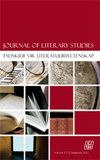非洲妻子的情绪健康:从洛拉·肖尼因的小说《巴巴·塞吉妻子的秘密生活》中观察共同妻子在压力管理中的普遍抵抗资源(GRRs)
IF 0.1
4区 文学
0 LITERARY THEORY & CRITICISM
引用次数: 2
摘要
尽管一夫多妻制对女性来说是一种压迫,但在许多当代非洲社会,一夫多妻制仍然是相关的,在那里,女性的文化可接受身份是妻子和母亲,正如洛拉·肖尼因(Lola Shoneyin)的《巴巴·塞吉妻子的秘密生活》(2015)所展示的那样。为了克服日常生活中的挑战,一夫多妻制的妻子必须在其他地方寻找资源,因为非洲的精神卫生设施相对较少,寻求专业帮助往往是例外。在小说的最后,申音把巴巴·赛吉的三个没有受过教育的妻子留在她所描绘的压抑的婚姻中,尽管她们的丈夫允许她们离开。博兰乐,受过良好教育的第四任妻子,决定离婚。在男权文化中,男人的统治是一种习惯,而女人的自由和情感幸福受制于她的社会所设定的条件,但这些条件是她可以通过对被征服的反应来控制的。本文运用亚伦·安东诺夫斯基的生理发生理论及其广义抵抗资源(GRRs)原理,展示了巴巴·塞吉的第一任妻子Iya Segi和最后一任妻子Bolanle在面对压力源时是如何应对或崩溃的。重点是自我力量、夫妻关系、夫妻地位、孩子的快乐、经济自由、教育和技能的grr。本文章由计算机程序翻译,如有差异,请以英文原文为准。
The Emotional Well-being of African Wives: Perceiving the Generalised Resistance Resources (GRRs) in Stress Management by Co-wives in Lola Shoneyin’s Novel The Secret Lives of Baba Segi’s Wives
Summary Although it is oppressive to women, polygamy is still relevant in many contemporary African societies, where the culturally acceptable identity of a woman is as a wife and mother, as demonstrated in Lola Shoneyin’s The Secret Lives of Baba Segi’s Wives (2015). To overcome the challenges of their daily lives, polygynous wives must search for resources elsewhere, since mental health facilities are comparatively few in Africa, and that seeking professional help is often the exception. At the end of her novel, Shoneyin keeps Baba Segi’s three uneducated wives in the repressive marriage she has depicted, even though their husband permits them to leave. Bolanle, the educated, fourth wife, decides to divorce. While the man’s domination is customary in a patriarchal culture, the woman’s freedom and emotional well-being are subject to conditions laid down by her society, but ones which she can control through her response to subjugation. This article uses Aaron Antonovsky’s theory of salotugenesis and its principles of the Generalised Resistance Resources (GRRs) to demonstrate how Iya Segi and Bolanle, respectively Baba Segi’s first and last wives, cope or crumble in the face of stressors. Emphasis is on the GRRs of ego strength, co-wife bonding, co-wife rank, joy in children, economic freedom, and education and skills.
求助全文
通过发布文献求助,成功后即可免费获取论文全文。
去求助
来源期刊

Journal of Literary Studies
Multiple-
CiteScore
0.50
自引率
0.00%
发文量
0
期刊介绍:
The Journal of Literary Studies publishes and globally disseminates original and cutting-edge research informed by Literary and Cultural Theory. The Journal is an independent quarterly publication owned and published by the South African Literary Society in partnership with Unisa Press and Taylor & Francis. It is housed and produced in the division Theory of Literature at the University of South Africa and is accredited and subsidised by the South African Department of Higher Education and Training. The aim of the journal is to publish articles and full-length review essays informed by Literary Theory in the General Literary Theory subject area and mostly covering Formalism, New Criticism, Semiotics, Structuralism, Marxism, Poststructuralism, Psychoanalysis, Gender studies, New Historicism, Ecocriticism, Animal Studies, Reception Theory, Comparative Literature, Narrative Theory, Drama Theory, Poetry Theory, and Biography and Autobiography.
 求助内容:
求助内容: 应助结果提醒方式:
应助结果提醒方式:


